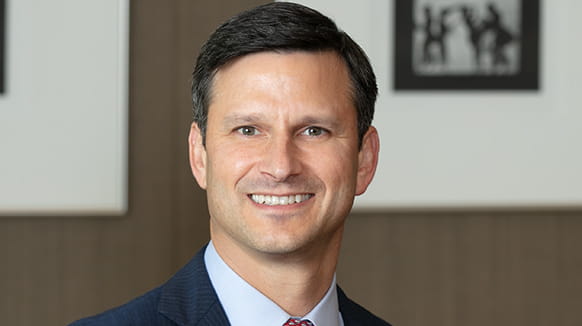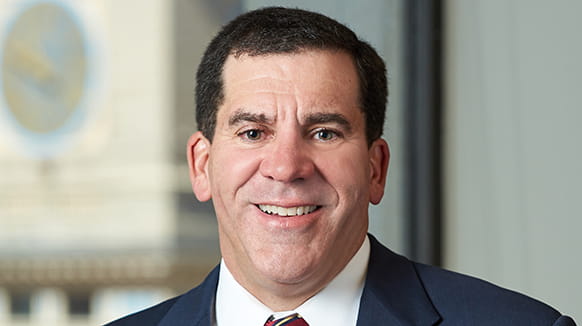On May 21, 2020, the United States Copyright Office published a long-anticipated report assessing the efficacy of Section 512 of the Digital Millennium Copyright Act (“DMCA”). In the nearly-200-page report, the Copyright Office takes a critical look at the DMCA’s “safe-harbor” provisions, ultimately concluding that certain aspects of Section 512 have become “unbalanced” in the twenty years since it was enacted. According to the Copyright Office, the “balance” has shifted almost uniformly in favor of online service providers (OSPs) to the detriment of rightsholders who own copyrights.
OSPs and others may disagree with the Copyright Office’s characterization of this shift. Many OSPs devote significant resources to comply with the requirements of the DMCA safe harbor, and others have implemented measures that go beyond those required by the DMCA. As one example, in recent years major OSPs have implemented “fingerprinting” technologies that are able to prevent the posting of copyrighted material before it is even posted, even though the DMCA does not require OSPs to take such proactive measures.
Fundamentally, the report is based largely on anecdotal and qualitative information rather than quantitative data. The Copyright Office admits as much and observes that due to the private nature of the takedown system under Section 512, “it has been difficult to quantify the extent to which many of the concerns expressed about the current U.S. notice-and-takedown system . . . represent significant limitations in need of remedy.”
While the Copyright Office stops short of proposing wholesale reform to the DMCA, it identifies several key areas where it believes the law has become outdated. The report also makes several recommendations to Congress for adjustments to the law that, in the view of the Copyright Office, might better balance Section 512 and meet the goals of the DMCA safe-harbor provisions.
The DMCA’s “Safe Harbor” Provisions
Section 512 of the DMCA seeks to strike a balance between two competing interests. On one hand, Congress sought to foster innovation and legal predictability for OSPs who allow their users to post transmit, or receive content by limiting their liability for copyright infringement due to third party copyrighted material contained within their users’ content. Congress also recognized the importance of protecting copyright rightsholders from rampant infringement made possible by the advent of widespread internet access, social media, and compressed digital media, like MP3.
To balance these divergent interests, Congress established a quid pro quo for OSP safe-harbor protections under the DMCA. To avail themselves of statutory limitations on liability for the copyright infringement by their users, Section 512 requires OSPs to implement procedures to curb online copyright infringement and provide rightsholders with additional mechanisms for enforcing their copyrights.
Most notably, these requirements include the implementation of “notice-and-takedown” procedures, which mandate that OSPs establish a system for rightsholders to report potential third-party infringement on their platform. Additionally, OSPs must adopt policies to terminate repeat copyright infringers in appropriate circumstances.
Section 512 “Tilted Askew”
A lot has changed in the past twenty years, and “the effect of societal and technological change on section 512 has long been evident” according to the Copyright Office. Its report suggests that, over the course of the last two decades, these changes have “tilted askew” the balance Congress intended to strike between the interests of rightsholders and OSPs, generally in favor of the service providers. This shift “has resulted in an increasing burden on rightsholders . . . while providing enhanced protections for OSPs in circumstances beyond those originally anticipated by Congress.”
To address this perceived imbalance, the Copyright Office made a number of suggestions to adjust or clarify Section 512, including the following:
Eligibility for DMCA Safe Harbor Protection
First, the Copyright Office suggests clarifying the eligibility requirements for the types of OSPs entitled to claim safe-harbor protection under the DMCA. While Congress intended Section 512 to be construed broadly to account for technological advancement, the report cautions that courts may have taken an overly expansive view of the types of entities entitled to safe-harbor protection, shielding OSPs from liability for nearly any activity remotely related to storage of user-generated content. In response, the Copyright Office recommends that Congress amend the DMCA to clarify the types of services that qualify for safe-harbor protection, and suggests a more cabined approach is appropriate.
The DMCA’s Knowledge Requirement
The report also takes a dim view of legal decisions interpreting the circumstances under which an OSP can be said to have knowledge of infringing conduct. To qualify for safe-harbor protection, an OSP must lack both “actual” knowledge of the existence of infringing material or activity on its service and “red flag knowledge”—an awareness of facts or circumstances from which infringing activity is apparent. Looking at several recent cases limiting red flag knowledge to knowledge of specific acts of infringement, the Copyright Office argues that courts have “set too high a bar” for red flag knowledge in a manner that Congress likely did not anticipate, effectively rendering the statute’s inclusion of red flag knowledge superfluous.
Repeat Infringer Policy
The Copyright Office also frets over the current state of OSPs’ obligations with respect to repeat infringers. Section 512(i) requires OSPs to adopt and implement policies to terminate access to “repeat infringers.” Unfortunately, Section 512(i) does not provide explicit guidance, which has allowed for flexibility as well as mischief. The Copyright Office points out that even the definition of “repeat infringer” can span a spectrum from “one who has been alleged to infringe one time” to “one who has been adjudged by a court to have infringed on multiple occasions.” The Copyright Office argues that lawmakers should better define “repeat infringer,” identify what “adoption” of a policy means and set explicit “minimum requirements” for the policy.
The Copyright Office argues in favor of strict policies and describes the current state of the law as a “bar . . . so low for OSPs as to be largely impractical.” The Copyright Office, in line with recent court decisions, suggests that a person should be considered a “repeat infringer” if the person is credibly alleged to have infringed on multiple occasions, as opposed to having been adjudicated an infringer in court.
There are reasons, however, to argue that the repeat infringer requirements for OSPs should be relaxed rather than strengthened as recommended by the Copyright Office. First, there are competing privacy concerns that are implicated if OSPs are required to monitor the acts of specific individuals or affirmatively seek identifying information with which to track alleged infringers. Additionally, user access to many OSPs has become an essential service in modern life and thus terminating a user’s access to an OSP, often without due process, could be a harsh punishment that should not be doled out lightly. This is especially true considering that many rightsholders generate infringement notices using third-party monitors and automated processes rather than a thorough investigation accounting for fair use and other available defenses.
Alternative Approaches to Section 512
The Copyright Office also discusses the possibility for several alternatives that would represent more of a wholesale change of the system rather than tweaks to reset the “balance.” For example, the report discusses the possibility of independent oversight, modeled on the UDRP virtual arbitration system used to combat cybersquatting, rather than the current private takedown system.
The Copyright Office also appropriately recognizes that foreign jurisdictions are tending to shift more of the burden of content moderation on OSPs rather than on copyright rightsholders. This is due, in part, to the fact that OSPs now have far more resources than they did during the infancy of the industry when the safe harbor was established. In response, however, the Copyright Office acknowledges the argument that OSPs and their advocacy groups contend that the relative strength of the United States as a preeminent home for OSPs is based, in part, on the protection provided by the DMCA safe harbor.
One new proposal that the Copyright Office devotes significant discussion to is a “notice-and-staydown” concept, by which an OSP is required to remove all infringing copies of a work after it has received a single takedown notice. Rightsholders argue that the current game of “whack-a-mole” encouraged by the DMCA is not sustainable due to rightsholders’ often limited resources. Presumably, a “notice-and-staydown” regime would utilize, at least in part, the fingerprinting technology that many OSPs are already implementing.
OSPs argue that such an obligation would not only be costly to carry out but would have unintended consequences such as filtering out non-infringing content due to the somewhat nascent nature of current generation technological solutions. Requiring such resource-intensive takedowns would also create a high barrier to entry that may be unattainable for emerging OSPs, which could lead to further consolidation or stagnation in the industry. Ultimately, the Copyright Office concludes that further study is required before it can recommend a “notice-and-staydown” obligation.
While the Copyright Office’s report should be considered in connection with any future discussion and analysis of the DMCA safe harbor, an act of Congress is required before the DMCA’s current notice and takedown procedures are modified. While no near-term legislative action is anticipated, any such action will only take place after considerable lobbying from OSPs, copyright rightsholders, and other interested parties. Haynes Boone will continue to monitor the situation and provide updates as it develops.
If you have questions regarding the issues discussed above, please contact one of the Haynes Boone copyright lawyers identified below.



